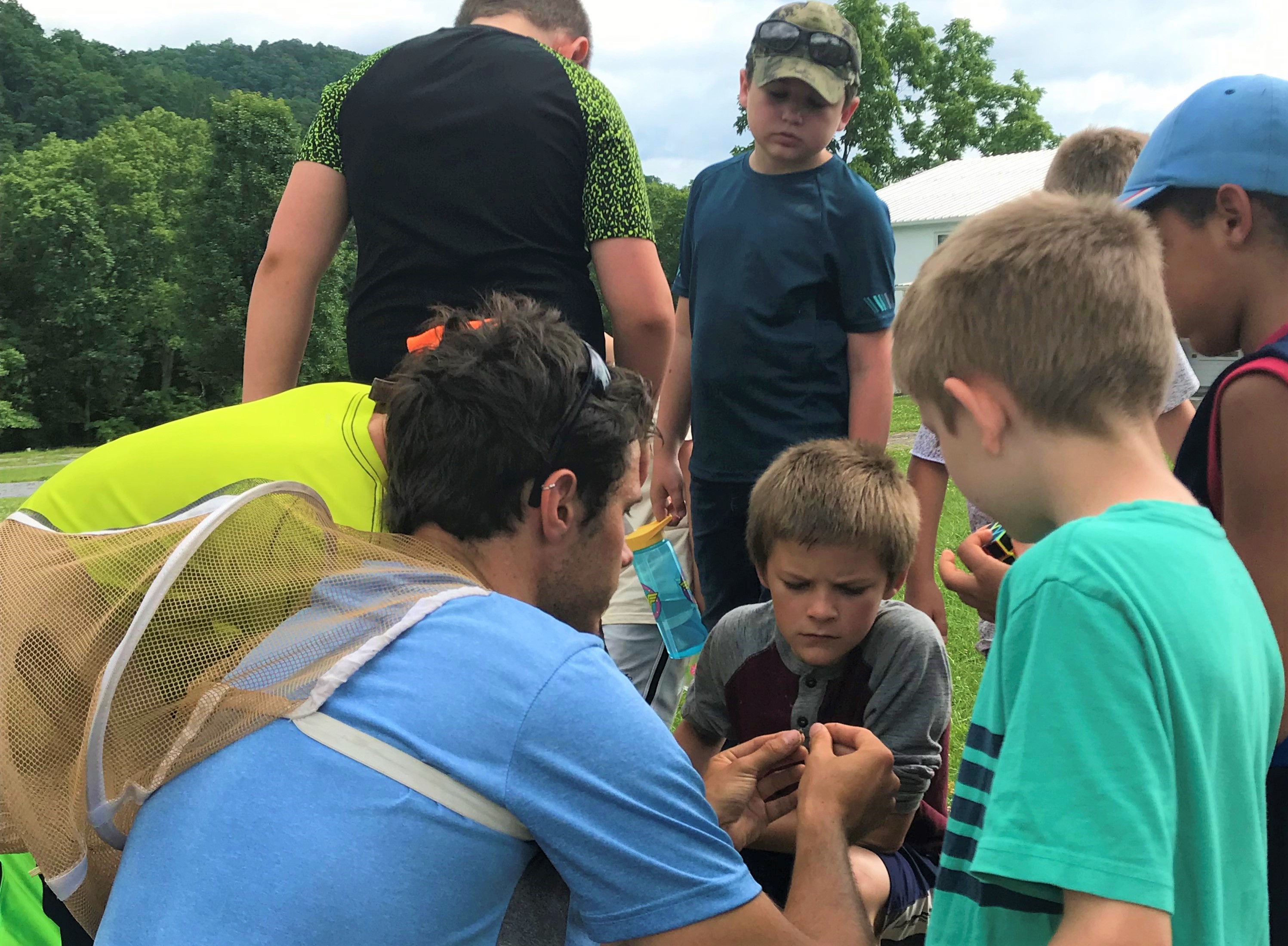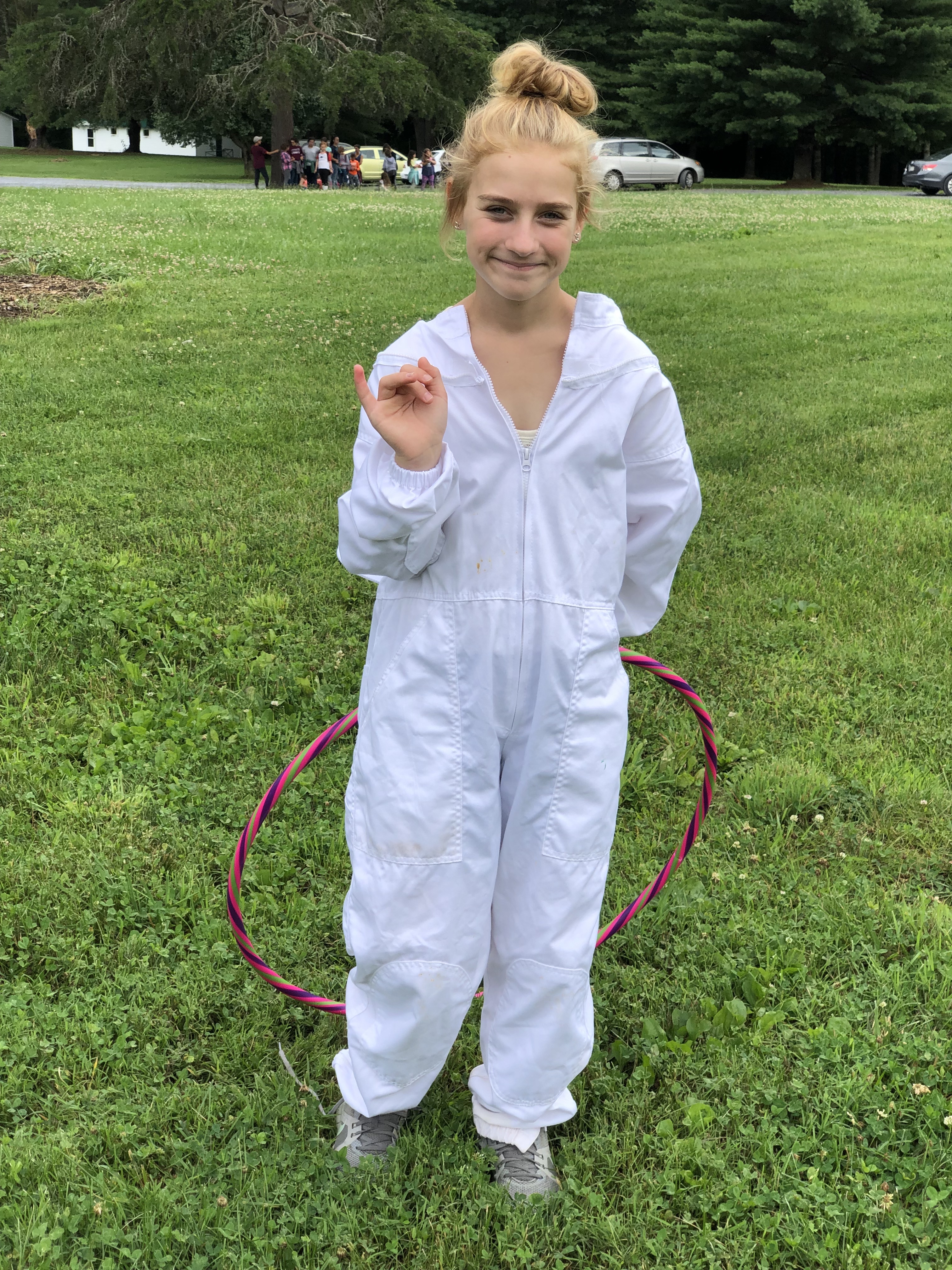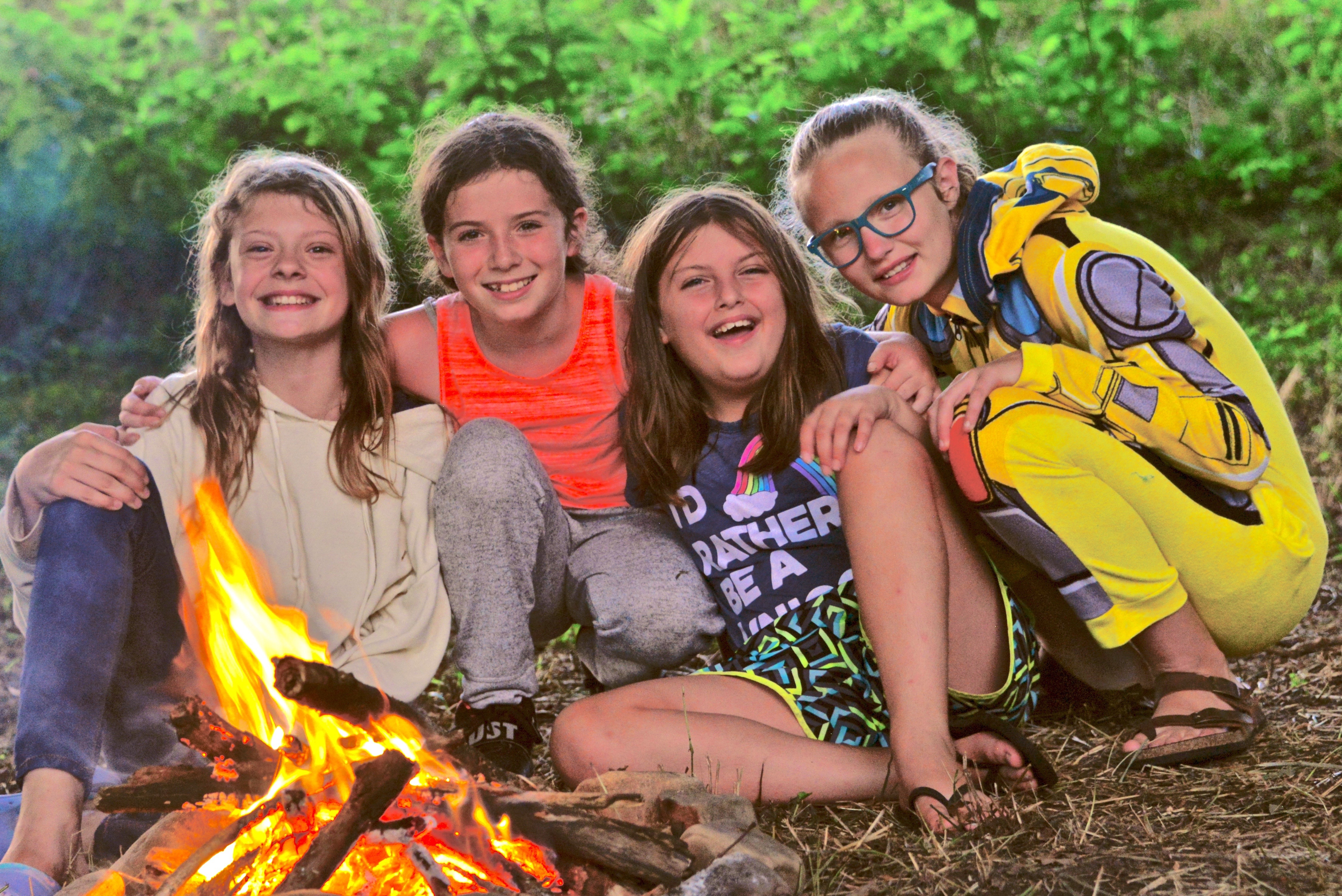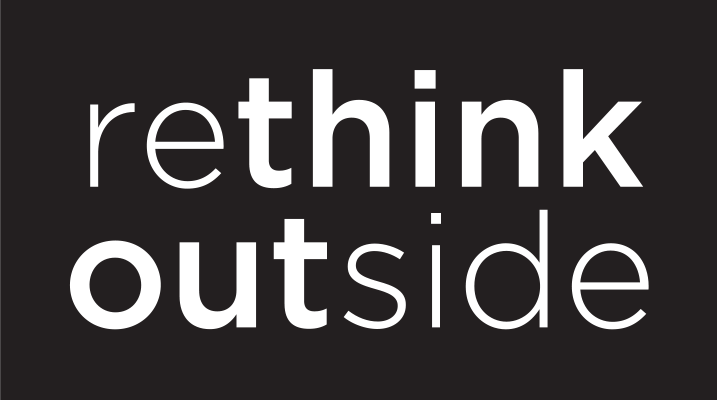Developing Healthy and Satisfying Connections to Land and Community
“The camp is on hold, but the bees are constantly busy,” says Cody Wood. Cody, 14, started beekeeping with his family several years ago. Right away the family realized it needed help. Luckily, they found Appalachian Headwaters.
Founded in southern West Virginia, the organization focuses on restoring the land and supporting the people who live there. It does this by creating job opportunities dedicated to improving water quality, establishing productive native hardwood forests, supporting native plant horticulture, and beekeeping. They also offer environmental education and adventure for kids at Camp Waldo. The camp is recently refurbished, with cabins and a dining hall to accommodate more than 110 kids. While it’s expensive to run, the organization ensures that kids with income barriers can also attend.

“Whether kids spend time outdoors through 4H, Future Farmers of America or family time, we try to enrich those valuable experiences. And we try to connect those experiences to environmental issues like water resources and climate change,” says Appalachian Headwaters Environmental Education Director Kevin Johnson.
Contributing to Community Wellbeing
 “Bees aren’t that scary,” says eleven-year-old Lily Latham. Like Cody, she connected with Appalachian Headwaters because her family kept bees. When she was about seven, she started helping her grandmother and aunt and going to their beekeeping classes. Her grandmother secretly signed Lily up for the test to become an apprentice beekeeper. Lily passed, becoming the youngest beekeeper apprentice in West Virginia.
“Bees aren’t that scary,” says eleven-year-old Lily Latham. Like Cody, she connected with Appalachian Headwaters because her family kept bees. When she was about seven, she started helping her grandmother and aunt and going to their beekeeping classes. Her grandmother secretly signed Lily up for the test to become an apprentice beekeeper. Lily passed, becoming the youngest beekeeper apprentice in West Virginia.
Both Lily and Cody appreciate how the support of Appalachian Headwaters has helped their families’ beekeeping skills improve. “Compared to other beekeepers, we lost only one hive out of four over the winter when the normal is to lose half,” says Lily.
“Our mentor Cindy Bee took us step by step on how to do everything correctly so we wouldn’t lose our bees and could do better for them,” says Cody.
When Cody and Lily had to stay home because of COVID-19 the beekeeping offered a sense of purpose. “The bees give me something to do,” says Cody.
“Right now, we have 10 hives,” says Lily. “We’ve been trying to take care of two hives a day because we have so many.”
Becoming Leaders and Stewards
Cody and Lily were disappointed Camp Waldo couldn’t host kids in 2020 due to the pandemic. In addition to favorite activities like swimming in the river, sports, creative activities, science and exploration, Lily and Cody also had the opportunity to learn more about and share their love of bees.
“At camp, we learn how we probably couldn’t live that well without bees pollinating crops–animals need fruits and vegetables,” says Lily. Lily also helped other kids learn and become less afraid of the bees. Her favorite fact? “How much honey does a bee make in its entire life?” Lily asks. “1/12 of a teaspoon. We eat a lot of honey.”
“At camp, they have no technology whatsoever,” says Cody. “I got to work with honey, learn about the environment and do arts and crafts.” He also answered other campers’ questions about bees.
But even without the camp, their growing knowledge, connections to other beekeepers, and past experiences continue to fortify them. “I’ve made so many friends in beekeeping,” says Lily.
Appalachian Headwaters supports its community with programming that overlaps and intersects, like beekeeping and camp. They also hope to increase their impact over time by collaborating with more local and regional partners like school districts and parks departments.
“It’s like a family. We pull together. Just like how all the bees work together to work toward a goal to make their community better,” says Cody.

Developing Healthy and Satisfying Connections to Land and Community | Appalachian Headwaters
